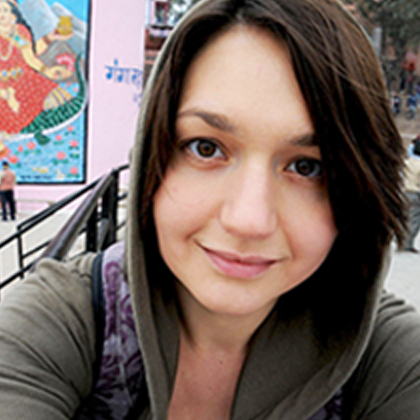- Posted by:
- anjci
- Under:
- Eurovision
It is that time of the year again!
Europe’s famously cringeworthy freakshow disguised as a musical event – better known as the Eurovision Song Contest – returned to our screens for the 67th time last Saturday.
While the honour of hosting Eurovision normally goes to the previous year’s winning country, the 2023 show was hosted by the United Kingdom for Ukraine; it was the fifth time the United Kingdom hosted the event for another country. Host city Liverpool transformed itself into a Eurovision fan-zone for the occasion, its deep-rooted musical heritage no doubt cultivating the festive atmosphere as the city was taken over by the Eurovision extravaganza for what is objectively the best week of the year.
Two notable format changes to this year’s contest were dropping jury votes from both semi-finals and opening public voting to non-participating countries, to be aggregated and presented under a common ‘Rest of the World’ set of points. As always, the results of the Grand Final represented a combined vote of the national juries and the public televote.
The Grand Final presenter line-up featured Ukrainian singer Julia Sanina and the legendary Irish television host Graham Norton alongside British singer Alesha Dixon and British actress Hannah Waddingham. One could not be blamed for thinking Norton’s voice sounded familiar: he is typically tasked with providing running commentary of every Eurovision event for UK viewers and is particularly famed for his tongue-in-cheek remarks on the participants’ performances. Norton being understandably busy, however, his usually abundant sarcasm was lacking on the big night, and I felt relieved when it became clear the United Kingdom would not be hosting Eurovision next year.
THE NIGHT’S HIGHS AND LOWS
It was Sweden’s Loreen who took the trophy home with her grand anthem ‘Tattoo’, becoming the only woman and the second artist ever to have won Eurovision twice (Johnny Logan did it for Ireland, in the 1980s) and tying Sweden with Ireland for the most Eurovision wins of all time, each having won seven times. A runaway bookies’ choice, Loreen had been hotly tipped to win for weeks and became a clear jury favourite, receiving 15 much-coveted ‘douze-point’ in the jury vote.
But it was not an uncontested victory for Sweden as it came head-to-head with old rival Finland. Käärijä’s catchy industrial techno-pop number ‘Cha Cha Cha’ – a mellow one, for Finland – stole the public’s favours by a landslide, winning the televote in a whopping 18 countries and comfortably landing Finland second overall. Finland was admittedly one of the quirkiest and most fun acts of the night, gaining overwhelming support of the fans gathered in the Liverpool Arena, to the extent that the presenters had to remind the audience several times to keep the chanting down.
Israel’s Noa Kirel finished third with ‘Unicorn’ having amassed millions of social media views and marking the 50th anniversary of her country’s participation in Eurovision, while Italy and Norway respectively landed fourth and fifth.
In an apparent return to normal, Mae Muller representing the United Kingdom finished second last, while Germany yet again found itself at the bottom of the list, for the fourth time in the last decade, having opted to be represented by the (admittedly awful) faux heavy metal foursome Lord of the Lost. It was also a disappointing night for Serbia’s Luke Black who placed third last with the dreamy ‘Samo Mi Se Spava’, in the process helpfully giving us an idea of what Icelandic punkers Hatari would sound like were they a Balkan videogame. And France’s La Zarra, visibly upset to land in the bottom half, inexplicably gave the live audience the ‘bird’ as she arched an eyebrow at us viewers falling so obviously short of her expectations – the gesture she unconvincingly assures us was inadvertent.
AND THE WINNER IS…
As has become tradition, I will finish by awarding specific entries across random categories. Countless overblown costumes no doubt caught your eye, but the best outfit award must go to Belgium’s Gustaph who arrived on the night sporting a Boy George-esque look equipped with a fabulously pointy hat and a pair of pastel pink dancing trousers; it was quite a spectacle. The singer had previously provided backing vocals on two Belgian entries which failed to qualify to the final, in 2018 and 2021. Ironically, it was the backing vocalists of Gustaph’s own song that stole his performance, but we can rest assured that Gustaph would have won the Eurovision Outfit Contest hands down.
The unfortunate title of the most domestically disliked song goes to ‘Solo’ by Poland’s Blanka, a five-member jury’s choice that beat an overwhelming public favourite in the country’s national selection, sparking dramatic controversy and accusations of cronyism. It would have been half-bad had the Britney-esque entry been remotely decent, but no song beginning with ‘baibeh’ can objectively lay that claim; this expensive karaoke audition for Poland finished 19th.
Big shoutout goes to Teya and Salena of Austria for integrating red – their country’s national colour – into their performance as they decried the lack of recognition for female writers in show business; the humorous ‘Who the Hell is Edgar?’ was loaded to the brim with musical jargon and featured the word ‘Poe’ (yes, in reference to Edgar Allen Poe for no reason whatsoever) a total of 153 times. Possibly the night’s most overengineered entry, the song fell on deaf ears, finishing 15th.
The Finnish performance may have involved a green bolero paired with references to piña coladas, but it is Croatia’s Let 3 that win this year’s best lyric award with their ‘Mama ŠČ!’, ‘Mommy bought a tractor’ and ‘Mommy kissed a moron’ being the song’s key – if somewhat ambiguous – messages. The anarcho-punk establishment are well known for vulgar demeanour and provocative style, and stripping down to Y-fronts during this Grand Final was – believe me – relatively mild for their usual standards. Think Village People meets Freddie, drunk, and in the Balkans.
And it is off to Sweden again next year! I shall be hoping the never-ageing Eurovision hunk Måns Zelmerlöw will once again be presenting the event with the inimitable Petra Mede, in time for the 50th anniversary of ABBA’s historic Eurovision victory.











Comments